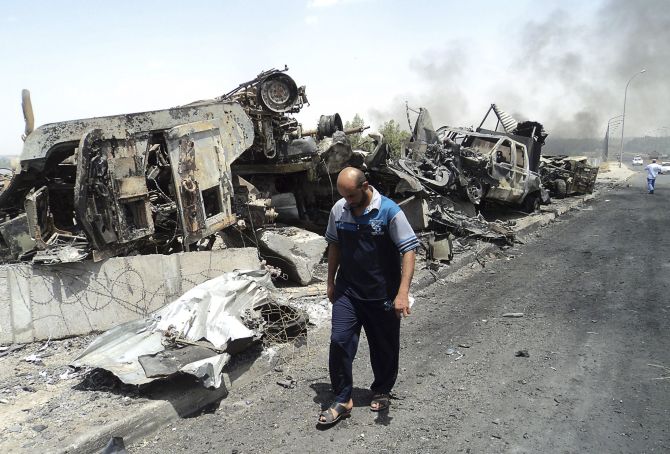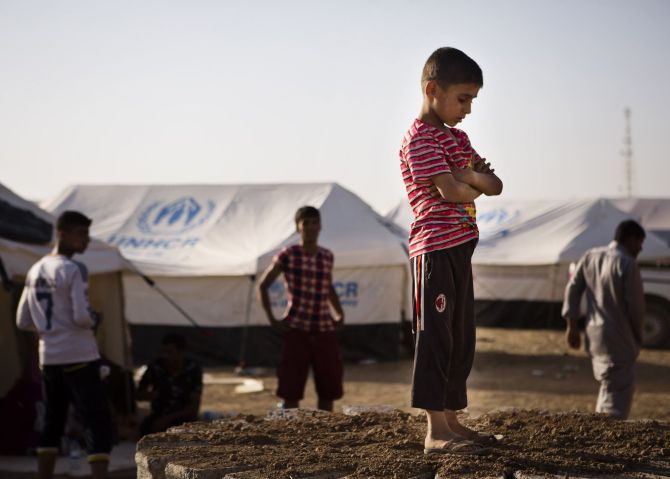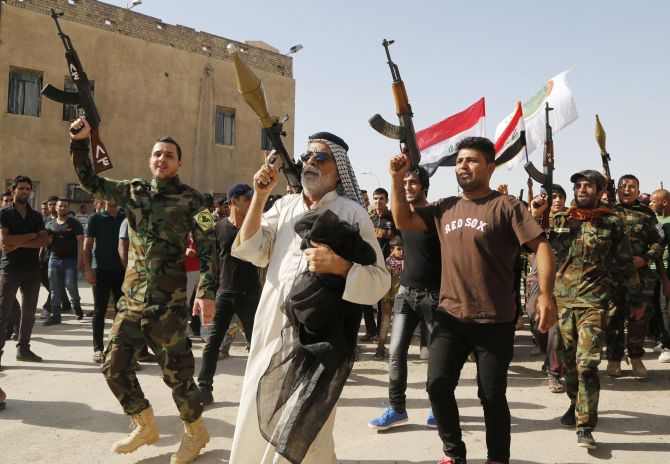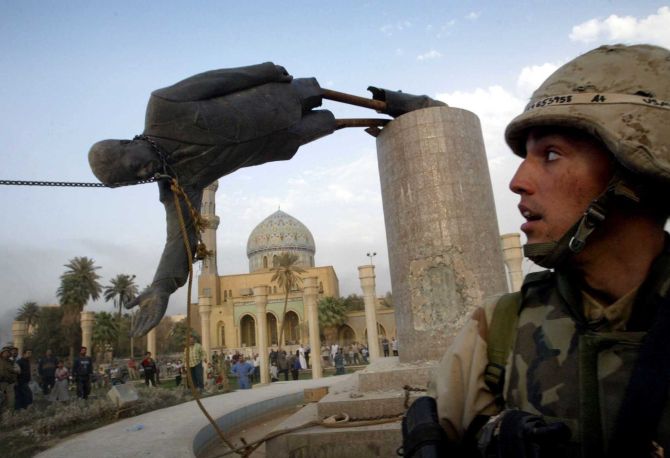 | « Back to article | Print this article |
'Iraq violence could spill over into other countries'
The scale of crisis in Iraq, with militants from the Islamic State of Iraq and al-Sham overtaking each town and vowing to continue their bloodshed till they take over Baghdad, has left everyone with the one question they thought they would never have to ask: Would Iraq have been more stable if Saddam Hussein had been in power?
The terror group ISIS, which is a splinter group of the Al Qaeda, is considered far too dangerous. They are so extreme in their methods that even the Al Qaeda’s central command disowned them, saying they were unnecessarily violent towards their fellow Muslims.
They are so dangerous, so evil that US Congressman Michael McCaul, chair of the Homeland Security Committee, called the ISIS, the “greatest national security threat since 9/11”. Mike Rogers, chairman of the Intelligence Committee, said that “this is as dangerous as it gets”.
Michael Kugelman, senior programme associate at the Woodrow Wilson Centre at Washington, DC, speaking to Rediff.com's/Vicky Nanjappa, says there will be no peace in Iraq in the near future. In an interview, he discusses the impact of the crisis in Iraq on India and why it was, in fact, a disaster to end the Saddam regime.
Click NEXT to read more…
'ISIS is a ferocious, formidable force that no one can stop'
How does the situation in Iraq impact the rest of the world?
The situation in Iraq is very significant for the world. All eyes are on Iraq. Considering one of the world’s most geo-strategically vital regions faces full-scale destabilisation, there is bound to be a spillover in other countries -- especially the risk is high in countries like Israel and Turkey. Also, the world depends of the Middle East for energy imports –- India being one of them. And the current situation would escalate energy costs.
Do you see peace in the near future or will the ISIS continue to take over more cities?
There will be no peace in the near future. I fear it would take months before the situation calms down. The ISIS is a ferocious, fearless, formidable force that no one can stop. Barring another United States invasion, which will not take place, it’s hard to imagine any way that this group can be stopped. And peace talks appear to be out of the question, as the ISIS is not interested in negotiations.
Click NEXT to read more…
'Though Saddam's reign was brutal, he was able to suppress sectarian forces'
Do you think it was a bad idea to bring down the Saddam regime and the man himself?
There is certainly something to be said about eliminating brutal dictators. However, it was a bad idea to end the Saddam regime, because most if not all the justifications provided by the US were based on falsehoods. Additionally, although Saddam’s reign was brutal and dictatorial, he was able to suppress the sectarian fractures and groups that existed in the country. So, it was natural that when his regime was overthrown and he was executed, these sectarian groups, which were brewing for so long, suddenly came to the fore and exploded.
Where do you think the US faltered when it comes to Iraq that has made the situation so dire?
The biggest error by the US was destroying so much of the Iraqi State -- especially the institutions. These had been brutal under Saddam, but they had also been effective. The US decided to disband them entirely, and then to rebuild them from scratch. It’s a strategy that backfired badly, because now Iraq is stuck with imperfect security institutions that are simply unable to respond to ISIS and Iraq’s other sectarian-minded threats.
Click NEXT to read more…
'Today's Iraq is not tomorrow's Afghanistan'
According to you, what is the immediate solution at hand?
Iraq’s national government needs to come up with a united, national plan for tackling the ISIS threat -- and this is a plan that needs a buy-in from the Sunnis and Shias alike.
Do you see something similar happening in Afghanistan?
It’s a possibility because by the end of 2016, all foreign troops will be out of Afghanistan, leaving a fledgeling and troubled military -- much like the one in Iraq -- to fend off the militants.
However, Afghanistan is not Iraq. I don’t think today’s Iraq will be tomorrow’s Afghanistan. I say this because of several reasons: Firstly, Afghanistan does not have the problem of the strong sectarian hate that exists in Iraq. Secondly, even though the Afghan Taliban is a brutal force, it is no match to the ISIS. The Afghan Taliban is also more divided and fragile than the ISIS and is also more favourable to negotiations. And finally, Afghanistan has more checks in place to reduce the risks of a civil war breaking out.



